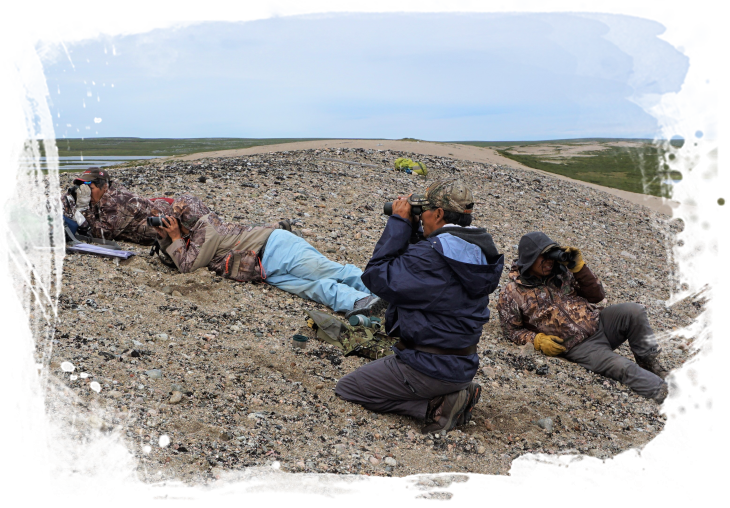Board of Directors
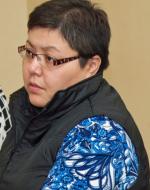
Anita Daniels
Board Member
Anita was born in Behchokǫ̀ and attended school there and in Yellowknife. In 1999 Anita began a 15 year career at the Tłı̨chǫ Community Services Agency where she served in a variety of positions from Board Coordinator to the Manager of Wellness and Social Programs. She was one of the early members of the CART (Community Action Research Team) team and later came to be the team manager for the group. CART is a peer to peer action research strategy for educating and involving young people to improve their health and wellness often related to sexual health, addictions, family violence and most recently, diet and nutrition issues.
She has presented the work of the CART team at international conferences in 2009 and 2012. In 2012 Anita transferred to the Tłı̨chǫ Government as the Director of Social Programs. She was a member of the GNWT Minister’s Forum on Addictions and Community Wellness in 2012-2013, and travelled throughout the NWT to listen to northerners about strategies to stop the destructive impacts of addictions on people in NWT communities. She was invited to Tromso Norway in 2014 for the premiere of the CART video project on “Breaking the Silence” related to violence against young women and suicide. Most recently she has worked in partnership with the ICHR (Institute of Circumpolar Health Research) in Yellowknife, on suicide prevention strategies in the circumpolar world, and was invited to return to Scandinavia to teach film and new media workshops with youth in Finland and Norway.
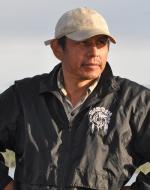
John B. Zoe, PhD.
Chairperson
Dr. John B. Zoe was the Chief Land Claims Negotiator for the former Treaty 11 Council of the NWT from 1994 until its conclusion with the establishment of the Tłı̨chǫ Government in 2005. John is now a senior advisor to the Tłı̨chǫ Government. He has an Honourary Doctor of Laws from the University of Alberta in recognition of his work in the development of the new government, as well as his contributions to involving elders and youth in projects that are built upon a foundation of Tłı̨chǫ language, culture and way of life. His own publications include articles on Dogrib ethno-archaeology and place names, Dogrib sacred sites, and the history of settlement types and traditional architecture. John was also elected as a Fellow of the Arctic Institute of North America.
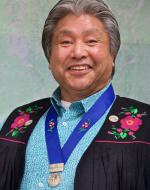
Joseph Judas
Board Member
Joseph was born, and raised on the land in the Marion Village area surrounded by powerful elders such as the late Chief Jimmy Bruneau, Gotse Whane and Jimmy Martin. He has worked and lived on the land all his life, never having attended residential school. He was a former Chief of Wekweètì , NWT and member of the Wek’eezhii Land and Water Board. Currently as a board member of the of the Tłı̨chǫ Research & Training Institute, he has been active in traditional knowledge research related to caribou.
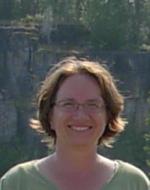
Leslie Saxon, PhD
Board Member
Dr. Leslie Saxon is a professor in the Department of Linguistics, University of Victoria. She is an advisor in the Certificate in Aboriginal Language Revitalization program and the Master's in Indigenous Language Revitalization program. She chaired her department from 2003-2008. From 2013-2015 she is the president of the Canadian Linguistic Association. Leslie has been a learner and researcher in the Tłı̨chǫ region for many years, first learning the Tłı̨chǫ language with the late Vital Thomas and Elizabeth Mackenzie. Since then she has had many teachers of all ages, especially Therese Mantla, Mary Siemens, Mary Koyina Richardson, Rosa Mantla, Mary Louise Bouvier White, Tammy Steinwand-Deschambeault, and the late Philip Rabesca. She has worked in association with the Tłı̨chǫ government and the Tłı̨chǫ Community Services Agency, and the territorial government and Aurora College: in teacher education, adult education, place names research, orthography development, curriculum development, dictionary research and development, and linguistic research.

Malcolm Scoble PhD
Board Member
Dr. Malcolm Scoble is the Head of the Mining and Metallurgical Engineering Department at the University of British Columbia (UBC) in Vancouver. He is a professional engineer in the province of British Columbia and a chartered engineer in the European Economic Community. Malcolm holds a B.Sc. in Mining from the Camborne School of Mines, UK, an M.Sc. in Mining Geology and Exploration from Leicester University, UK, and a Ph.D. in Rock Mechanics from Nottingham University, UK, where he was also a lecturer.
He was Director of the Mining Engineering Program at McGill University in Montreal for 9 years, and holder of the endowed Webster Chair in Mining Engineering from 1990 through 1997. He was associated with the establishment of the Cooperative Program in Mining Engineering (the first Co-op degree at McGill). Over the years at McGill, much of his mining automation research efforts were expended in collaboration with Inco Ltd. and Laurentian University in Sudbury. In 1996 he was appointed Adjunct Professor in the School of Engineering at Laurentian University in Sudbury. He also acted as Director and Secretary-Treasurer of McGill's Small Mining International (SMI), a non-profit organization serving artisanal mining in developing countries.
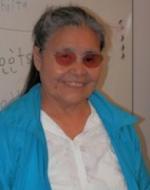
Mary Adele Rabesca
Advisory Committee Member
Mary Adele is a member of the Healing Wind Advisory Council, where she provides elder oversight and direction to the development and delivery of Tłı̨chǫ Government social programs and services. Mary Adele has been active in the research life of the Tłı̨chǫ communities for decades. Her publications include as a member of a community based research team with Dr. Joan Ryan, Traditional Dene Justice (1993) and Traditional Dene Medicine (1994) to most recently CART productions and activities this past year such as the “Breaking the Silence” video on violence in homes and the Ts’e Whıı Ts’e Daa (Rites of Passage) program.
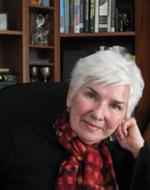
Nancy Gibson, PhD
Board Member
Dr. Nancy Gibson, received her Ph.D. in Medical Anthropology at the University of Alberta. She is professor emeritus at the University of Alberta, where she served as Chair of the Department of Human Ecology and Science Director for the Canadian Circumpolar Institute. She also chaired the National Human Health and Well-being Science Review Panel for the Canadian International Polar Year program. Nancy collaborates on community-based health projects with aboriginal and immigrant communities in Northern Canada and Alberta. She is currently working with the Tłıchǫ Government to build capacity to address community-identified priorities. Examples include prevention of sexually transmitted infections and promoting healthy nutrition, as well as strengthening day-to-day management skills to support the transition to self-government. Nancy is a Senior Researcher with CIET, an NGO based at McGill University in Montreal that provides research training and facilitation to communities for program and policy development.
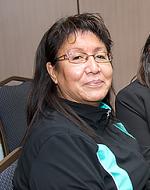
Nora Wedzin
Board Member
Nora Wedzin was born in Rae and attended school in Rae, Yellowknife and Fort Smith. Nora sits on the Board of Directors of the Tłı̨chǫ Research & Training Institute in her role as the Cultural Coordinator under the Tłı̨chǫ Intergovernmental Services Agreement. The Cultural Coordinator is a 4 year appointment for the life of the current Tłı̨chǫ Assembly. Ms. Wedzin was the Director of Continuing Care and Independent Living with the Tłı̨chǫ Community Services Agency In Behchokǫ̀. Nora has had a long and respected career with the Government of the NWT/ TCSA in the region. She graduated with a diploma in social work from Arctic College in 1991 and a Bachelor of Social Work degree from the University of Regina in 2001. She has worked as a Child Protection Officer, a Regional Manager for Child and Family Services, and a Medical Social Worker. She has also been active in community affairs over the years, most recently having been a Tłı̨chǫ Assembly member representing Behchokǫ̀ during the 2nd Assembly of the Tłı̨chǫ Government.
She was a leading member and Coordinator of the Tłı̨chǫ Cosmology Project at the Tłı̨chǫ Community Services Agency funded by the Aboriginal Health Transition Fund of the Government of Canada. As a result of this work, she co-authored the Report to the GNWT Standing Committee on Social Programs to Review the Child and Family Services Act. This report is an important foundation of the Tłı̨chǫ Plan (section 6.2 of the ISA) as it is the first attempt in the region to develop a cultural framework through which to review government programs and services.
